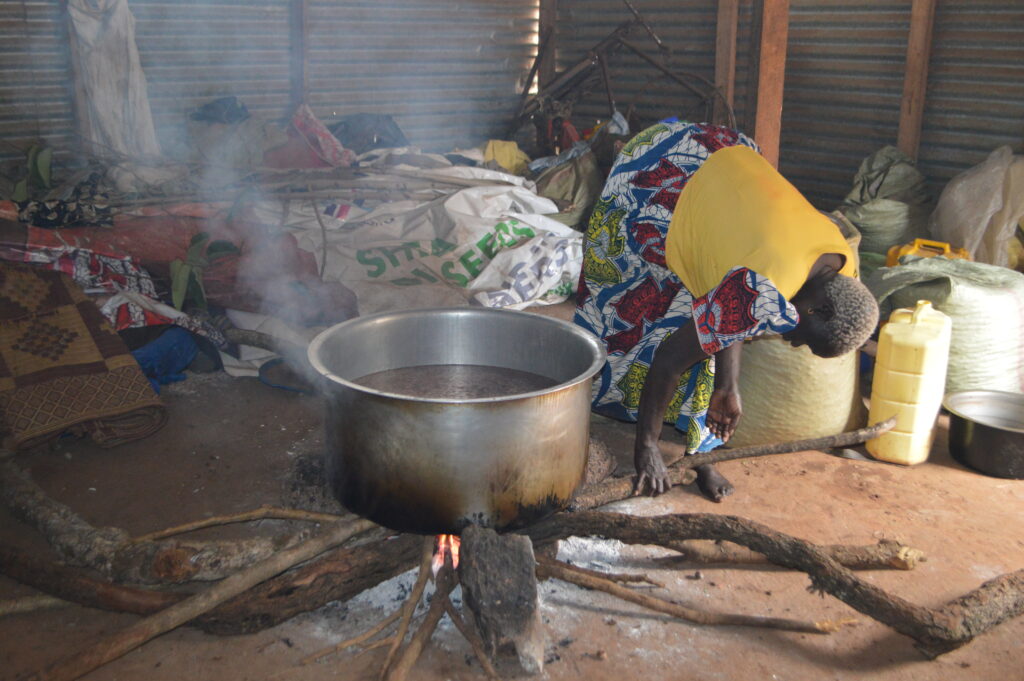
 Rapa FM Pader
Rapa FM Pader

 Rapa FM Pader
Rapa FM Pader
19 July 2025, 20:56

By Lakaraber Gladys Kasline
Since its founding in 2010 with just 90 members, the Pader Shea Butter Cooperative has grown significantly, now empowering 500 men and over 900 women by giving them access to economic opportunities and a strong sense of belonging.
A major contributor to this transformation is the shea nut tree, regarded as one of the most valuable trees in the Acholi subregion. The shea tree, which takes more than 20 years to mature and bear fruit, is known for providing local families with both food and economic capital.
The fruits harvested from these rare trees yield pure, natural oil that serves dual purposes: as a nutritious addition to meals and a beneficial ingredient for skincare. An impressive 10,000 kilograms of cold-pressed shea butter and 15,000 liters of hot-pressed shea oil are produced annually by the Pader Shea Butter Cooperative.

Production methods
To produce cold-pressed products, community members sun-dry the shea seeds, grind them using machines, and then cook the resulting butter before packaging it in containers of various sizes. The seeds are first properly dried for several days. After drying, they are measured and placed into a machine that grinds them without adding water. The material is ground until it turns into a liquid form and is then packed in tins measured in kilograms. These are mainly used for body care (as smearing oil). The waste from this process is used as humus to enrich crops.
Data viz (Cold pressed)https://public.flourish.studio/visualisation/24260252/
Hot-pressed products, on the other hand, are made by cooking the shea butter. After collecting, sun-drying, frying, and grinding the seeds, the resulting product is measured in liters since the main outcome is cooking oil. The process involves drying the seeds, frying them over a fire until they emit a sweet aroma, pounding them into a semi-liquid, and then cooking the mixture with a little water in a clean saucepan. The mixture is left to boil for some time, monitored carefully depending on its quantity. Once cooled, the oil is filtered and packaged.
Community members note that cold-pressed shea butter is easier to produce because it doesn’t require water or a lot of firewood. However, hot-pressed products have a higher market demand despite being more time-consuming to produce.
Pader Shea Butter produces natural products, using only water for hot-pressed butter. Cold-pressed products are made without any additives.
Data Viz (hot pressed)https://public.flourish.studio/visualisation/24260734/

Economic impact and leadership
In addition to meeting local demand, the cooperative distributes its products across Uganda through local markets and trade shows, thereby boosting the local economy.
The Chairperson of the Pader Shea Butter Cooperative, Abalo Leonorah Okello, who is also an elder councillor in the Pader district, shares her inspiring journey. Abalo learned how to make hot-pressed shea products from her mother at the age of seven in 1960. She used the money from these products to pay for her education.
“I am still doing this because of the hidden treasure I discovered from the shea trees,” she explains passionately. “This cooperative requires member participation, so in addition to being chairperson, I also help collect raw materials.”
Despite their success, challenges remain. Pader faces water shortages, which hamper production, especially during the washing and mixing of materials. Other challenges include limited access to firewood and poor connectivity to other counties. A growing threat is the rampant charcoal burning, which leads to the felling of shea trees.
Yet Abalo remains determined. Despite the demanding nature of production, the cooperative has stayed competitive by reducing product prices. She emphasises that starting a shea business doesn’t require much capital, dedication, and she urges Acholi residents to preserve the few remaining shea trees for the sake of health and economic transformation.
“With my father’s help, my mother worked hard to harvest shea trees, which paid for my education. I used the income from shea products to educate my children and now my grandchildren. Shea production supports my farming and daily needs. Shea trees are my only hope, please don’t cut them down,” she pleads.

Community voices and conservation efforts
Acan Molly, a cooperative member from Pukor subcounty, Pader, encourages Acholi communities to embrace shea oil for its nutritional value and safety. She gathers shea seeds between May and July, the harvesting season, and uses the seeds to make products after consuming the fruit.
John Pako Lugai II, the leader of the Palwo Clan and Chairperson of Chiefs in Pader, strongly opposes the cutting of shea trees for charcoal. He says, “Since shea trees symbolise the Acholi community, we’ve decided to punish anyone caught chopping them down.” Chiefs have agreed to protect these trees, acknowledging that it takes over 20 years for them to bear fruit.
Lugai added that cultural leaders in Pader are supporting policy makers in conservation efforts, including banning deforestation and protecting shea trees.
Akello Grace, another cooperative member from Atanga town council, urges communities to heed the advice of cultural leaders and policymakers regarding tree conservation. “I appreciate my cooperative because it helps my family. With the skills I’ve acquired, I can now produce shea products for economic transformation,” Akello states.

According to Bosco Tonny, the acting Forest Officer of Pader District, the district has developed legislation to protect shea trees due to increasing deforestation. These laws require the planting of 20 new shea trees for every one felled. Offenders face arrest, six months of imprisonment, and fines of UGX 150,000 per tree cut or UGX 600,000 for burning shea trees.

Michael Ojok, the Pader District Commercial Officer, encouraged the cooperative not to give up and assured them of the district’s support, including guidance on participating in trade and agricultural shows. He advised them to consider value addition to better compete in the market and praised their efforts in women’s empowerment through shea-based enterprises.
Through shea production, the cooperative helps over 900 women provide for their families. Ojok added, “We will continue to encourage members to explore other business opportunities.”
To sustain their work, the cooperative offers free training to members and paid training to non-members. Interestingly, the waste from shea production is also used to destroy anthill nests near homes, helping with pest control.
The Pader Shea Butter Cooperative is based in Ogwaleng-Valley Settlement, Luna parish, Pader town council. It is a registered cooperative with 14,000 verified members, including 500 men and 900 women. The cooperative not only produces pure shea butter and promotes environmental sustainability through recycling but also contributes to the well-being of families and the broader Pader community through women’s hard work and commitment.
“The production of this story was sponsored by InfroNile in Partnership with Palladium under Climate smart Jobs”